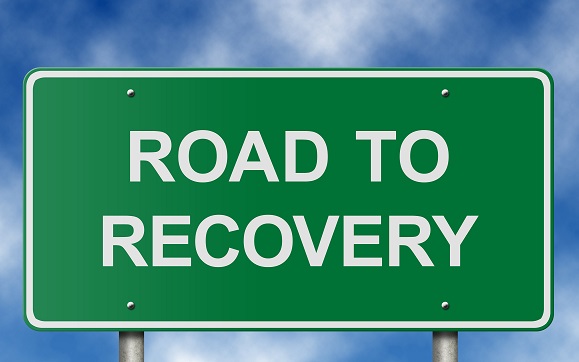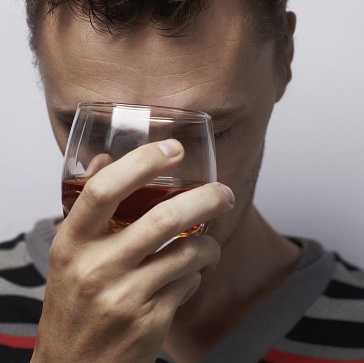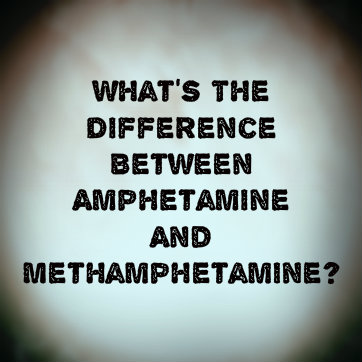18 Jun 2014
Abstinence In Addiction Recovery
The prevailing view in addiction treatment and recovery is that abstinence is the best approach. This means that once drugs or alcohol are removed from the body following detox, the addict resolves to totally abstain from using them. The reasoning behind this idea is that an addict is incapable of moderation. Many addicts in recovery believe that they have learned how to partake responsibly and that they can have a drink or two at a party. Is it really possible? Or do you need to abstain for the rest of your life?
Why Abstinence?
 Abstinence as a philosophy for addiction treatment has been around for decades. Alcoholics Anonymous is one of the oldest support programs and is one that firmly believes in the importance of abstinence. Another model, similarly based on the 12 steps, is called the Minnesota Model and also calls for total abstinence from drugs and alcohol. For both programs, and any 12-step based program for addiction treatment, the primary goal is lifelong abstinence.
Abstinence as a philosophy for addiction treatment has been around for decades. Alcoholics Anonymous is one of the oldest support programs and is one that firmly believes in the importance of abstinence. Another model, similarly based on the 12 steps, is called the Minnesota Model and also calls for total abstinence from drugs and alcohol. For both programs, and any 12-step based program for addiction treatment, the primary goal is lifelong abstinence.
These addiction treatment programs advocate for abstinence because they believe it is the only way that an addict can return to a normal way of life. They claim that an addict in recovery cannot handle having just one drink, or using narcotic prescription painkillers. One small slip-up may lead to a downward spiral and a return to full-blown addiction.
Are There Any Non-Abstinence Treatment Options?
As addiction treatment advances and evolves, experts have developed models and programs that do not necessarily require abstinence. For example, harm reduction is a philosophy of treatment that is gaining ground. Long used for heroin addicts, harm reduction means taking steps to reduce risks and harm caused to addicts. It allows for addicts to reach sobriety on their own terms and in their own time. Heroin addicts being treated in this way are given maintenance drugs like methadone, or clean needles to reduce the risk of spreading infectious diseases such as HIV/AIDS, or hepatitis B and C.
Heroin addicts are not the only ones who are experimenting with non-abstinence. Other types of addicts are embracing the idea of moderation. Using alcohol moderately and responsibly is becoming more popular as a way for addicts to re-enter society as a contributing member. One such group advocating this approach, Moderation Management, believes in the possibility of changing behaviors without requiring total abstinence. In particular, they advocate for problem drinkers to learn how to become moderate drinkers.
Is Abstinence Best For Me?
Whether you need to embrace complete abstinence is a personal choice. Some people respond well to a non-abstinence-based approach. They can be successful at learning how to moderate drinking, how to drink socially and how to be responsible about drinking without taking a headfirst dive back into addiction. For others, however, this approach simply doesn’t work and complete abstinence is the only safe way to remain healthy and well.
Making the choice to embrace moderation is not a decision to make alone. If you are already in recovery, talk to your therapist, counselor, mentor, and your closest friends and family members. Getting treatment was not something you could do alone and making this choice isn’t either. If you decide to try drinking in moderation, make sure that the people who support you know about your choice and respect their opinions. If everyone says it’s a bad idea, listen. If you do try to drink and it causes a bad relapse, don’t feel bad. Just get back into your recovery routine, resume therapy sessions, if possible, and recommit to sobriety.
Learn More About 12 Step Treatment Programs – And Break Free From Addiction!
Medication commonly plays an important role in the effective treatment of alcoholism (one of the two overlapping conditions that constitute alcohol use disorder). Some of the medication options in use were specifically designed to help people affected by problematic alcohol use, while others were originally designed for the treatment of non-alcohol-related health concerns.
In a study published in April 2014 in The American Journal of Drug and Alcohol Abuse, researchers from the Boston University School of Medicine explored the potential usefulness of an anti-seizure medication called ezogabine or retigabine as a treatment for people diagnosed with alcoholism.
Medications For Alcoholism Treatment
 Doctors have four main medication options for helping people affected by alcoholism. Two of these options, disulfiram (Antabuse) and acamprosate (Campral), were developed primarily for alcohol-related treatment. Pharmaceutical researchers initially developed the third option, naltrexone (ReVia, Vivitrol), as a treatment for people diagnosed with opioid addiction. The fourth option, topiramate (Topamax), was originally intended to help individuals affected by certain types of seizure disorders.
Doctors have four main medication options for helping people affected by alcoholism. Two of these options, disulfiram (Antabuse) and acamprosate (Campral), were developed primarily for alcohol-related treatment. Pharmaceutical researchers initially developed the third option, naltrexone (ReVia, Vivitrol), as a treatment for people diagnosed with opioid addiction. The fourth option, topiramate (Topamax), was originally intended to help individuals affected by certain types of seizure disorders.
The U.S. Food and Drug Administration has officially approved disulfiram, acamprosate and naltrexone as alcoholism treatments. The FDA has not approved topiramate for alcoholism treatment; however, doctors can still prescribe this medication as an unofficial or “off-label” option.
Unique Results
Each of the current medication options for alcoholism produces results in its own distinct way. For example, disulfiram deters drinking by slowing down the body’s ability to process alcohol and sharply exaggerating the unpleasant symptoms associated with excessive alcohol consumption. Acamprosate helps ease some of the worst symptoms of alcohol withdrawal by making certain changes in the brain’s chemical balance.
Naltrexone helps block the nerve receptors that normally give opioid narcotic substances access to the brain; for reasons that are not entirely clear, this action also interferes with the pleasure derived from alcohol consumption and reduces the strength of cravings for more alcohol intake. Topiramate helps reduce any overactivity in the brain’s nerve cells; although no one really knows why, this reduction also diminishes the strength of alcohol cravings and helps lower the risks for participation in excessive drinking.
Outside of the U.S., ezogabine is also commonly known as retigabine. Its brand name within the U.S. is Protiga. Like topiramate, ezogabine belongs to a group of medications called anti-seizure medications or anticonvulsants. Doctors typically use the medication as part of a larger course of treatment for adults affected by seizures called partial onset seizures, which remain localized in one part of the brain rather than branching out and producing more widespread effects. Ezogabine comes in tablet form.
Ezogabine In Alcoholism Treatment
In the study published in The American Journal of Drug and Alcohol Abuse, the researchers from the Boston University School of Medicine used laboratory experiments on rats to investigate the usefulness of ezogabine (retigabine) as a treatment for alcoholism. These researchers had previously explored the potential usefulness of other types of anti-seizure medications and chose to focus on ezogabine because the medication works in a fairly unique way inside the brain.
During the study, the researchers gave ezogabine to two groups of rats for three days. One of these groups had access to a 10 percent solution of pure drinking alcohol, while the other group had access to a 5 percent alcohol solution. A comparison group of rats received a placebo instead of ezogabine. After comparing the outcomes in the three groups, the researchers concluded that the rats given ezogabine significantly reduced their alcohol intake over the course of the study.
The authors note that the therapeutic dose of ezogabine given to the rats in the project was quite close to the dose capable of producing an unwanted loss of muscle control. This means that, in human beings, the amount of the medication needed to help recovering alcoholics curb their drinking may not differ much from the amount capable of causing harm. Citing this finding, the study’s authors call for more research to investigate the specific effects that ezogabine has inside the central nervous system (brain and spinal cord). In addition, they feel that their ezogabine-related work can play an important role in the search for other medications that work in a similar way and may ultimately provide unique benefits in alcoholism treatment.
Call Us Now For Alcohol Abuse Help! We Are Here For You 24/7!
Attention deficit hyperactivity disorder, or ADHD, is a common behavioral disorder in childhood. If you have a child with ADHD you are far from alone. Many kids use medication as part of the treatment for ADHD and there have been some concerns that these drugs could lead to later problems of substance abuse. Whether ADHD medications cause an increased risk for later addiction is not fully known, but what is certain is that you as a parent have the biggest influence over your child’s choices.
ADHD Treatment And Medications
 Experts agree that the best way to treat the symptoms of ADHD, which include hyperactivity, inability to focus or concentrate, and impulsive behaviors, is with both therapy and medication. Using drugs alone is not the best solution to helping kids with ADHD. When they learn to modify their behaviors and are given medications to help them better focus, they have the best odds of success.
Experts agree that the best way to treat the symptoms of ADHD, which include hyperactivity, inability to focus or concentrate, and impulsive behaviors, is with both therapy and medication. Using drugs alone is not the best solution to helping kids with ADHD. When they learn to modify their behaviors and are given medications to help them better focus, they have the best odds of success.
The medications that are used to treat ADHD are stimulants. Although it may seem counterintuitive, these stimulants actually help children to focus, to concentrate on one thing at a time, and to be able to control impulses. There are different kinds of stimulants used for ADHD, including Ritalin, Concerta and Adderall, among others. Children needing one of these drugs may have to try a few before finding the right one and the right dose that maximizes benefits while minimizing side effects.
Will ADHD Medications Cause Future Drug Abuse?
There has been controversy surrounding the use of stimulant medications to treat ADHD in children, but nothing has yet outweighed the benefits that these drugs have given kids. Some claim that kids are overmedicated and the drugs can cause lasting harm, although there is no evidence for this. One very real problem is abuse of ADHD prescriptions. It is not uncommon for teens and college students to use these drugs (which are mostly amphetamines) in large quantities to stay up late for studying and writing papers. This abuse can definitely lead to addiction.
Another controversy has been the fear that even the use of ADHD medications by kids following a doctor’s instructions could lead to future addiction. A few studies have made this connection, but have failed to show whether it was conclusively the drug or other factors that led to later drug abuse. A more recent review of these kinds of studies failed to find real and substantial evidence that ADHD drugs cause a child to abuse drugs or become addicted to drugs later in life.
The review included 15 separate studies and more than 2,000 participants. The result was that being medically treated for ADHD has no connection to future drug abuse. It neither increases nor decreases the risk of drug addiction. An interesting finding is that simply having ADHD can increase a child’s risk of future drug abuse; it seems likely that treating the disorder could therefore reduce the risk.
Good News For Parents Of Children With ADHD
The good news for parents of children with ADHD is that stimulant medications are largely helpful. As long as there are no serious or disruptive side effects the drugs can help kids focus in school, get along with peers better, and be more successful. The risk of developing substance abuse problems later in life is not related to medication.
In fact, what all experts know is that parents’ influence and behaviors is the biggest determining factor in whether a child abuses drugs. Talk to your children about drug abuse and develop a healthy relationship and you can steer them in the right direction.
Read More About Mental Health, Teens And Addiction
13 Jun 2014
Addiction On The Job
Drug addiction is a disease that takes over every aspect of life, from relationships and home life to job performance and career. Struggling with addiction, while also trying to maintain a position at work is a big challenge. You probably have many concerns and questions: Do my coworkers and my boss know? If I take time off for treatment will I lose my job? What about drug testing at work? Getting care for your addiction and getting well should be your top priority. However, you should also consider how it may impact your job.
Does Everyone At Work Know About My Addiction?
 It is not unusual to feel ashamed or embarrassed about having a substance abuse problem. You probably want to keep your addiction a secret from your coworkers and your boss, but the signs might be obvious. While many addicts are good at hiding their problem, there is a real possibility that everyone does know, or at least suspects.
It is not unusual to feel ashamed or embarrassed about having a substance abuse problem. You probably want to keep your addiction a secret from your coworkers and your boss, but the signs might be obvious. While many addicts are good at hiding their problem, there is a real possibility that everyone does know, or at least suspects.
If you have been actively trying to hide your addiction, this should be a red flag that you really do have a problem and need to seek treatment. It may be embarrassing to admit to your struggle, but your health and well-being are more important. If you haven’t yet sought help, consider inquiring with your company’s human resources department about an employee assistance program (EAP). If there is an EAP available, you can use it to get confidential help and resources for addiction treatment.
How Can I Face Going Back To Work After Rehab?
Getting help is your first step toward the rest of your life in sobriety. Making use of your company’s EAP you can find addiction treatment that works for you. You may even be able to attend outpatient treatment in the evenings and on weekends and not miss work. It is important that you understand your limits, though. If you are unable to resist the urge to keep using, you may need to go to a residential rehab facility.
If you are worried about being discriminated against because of your addiction, know your rights. The Americans with Disabilities Act does not protect you if you are still abusing illegal substances. However, if you are no longer using and are seeking treatment, you cannot be discriminated against in the workplace. Addiction is a disease and as long as you are getting treated for it, you cannot be punished at work.
While you may not be discriminated against officially, you may still feel that you are being subtly mistreated when you return to work after completing addiction treatment. You may feel stigmatized by your coworkers or feel that they no longer trust you or that they are excluding you. Sometimes these behaviors result from a genuine ignorance, as your coworkers may not have any experience with addiction. If you feel comfortable doing so, offer to discuss the situation with a curious coworker. This may help your reintegration into the workplace.
Another issue with going back to work is the possibility of relapsing. Going back to the job can be stressful and turning to drugs is your natural response to stress. Before returning to the workplace, be sure you are ready and have a plan in place for resisting the urge to use again. This may mean having loved ones ready to support you when you feel like using or having a support group to attend. The most important thing is your health. Work is important too, but you won’t be able to do your job fully until you have taken care of yourself and your recovery.
Call Us Now – If You Or A Loved Have Rehab Questions Or Need Addiction Help!

Every day in the U.S., 105 people die as a result of drug overdoses. Both prescription medications and illicit drugs are to blame, but regardless of the cause, taking steps to reduce the number of unnecessary deaths should be a priority for lawmakers across the country.
One common legal approach to the problem is a “Good Samaritan” law, which promises legal immunity for those who notify authorities of a drug overdose in progress.
Louisiana, despite recently passing a fairly extreme sentence for repeat heroin dealers, has become the 20th state to adopt such a law, and has thereby taken a decisive step in reducing the suffering caused by drug abuse.
Louisiana’s Good Samaritan Law
There were a few changes made to the new rules at the last minute. One of these was that the individual who calls for help will have to stay in the location, and must provide his or her full name to officials upon request.
Paramedics are also allowed to carry naloxone, an antidote to opiate overdose with the potential to save lives all around the country if made widely available.
Furthermore, in a reasonable caveat to the new rule, you can’t be granted immunity if you’re the person who administered the drug that led to the problem.
Although this restriction may still lead to people not calling for help if they’re at fault, it’s clear that people who administer dangerous doses of drugs in unknown circumstances should not be granted immunity without a thorough investigation of the circumstances.
Reporting OD’s And Fear Of Police Involvement
“Research shows that the most common [reason] people cite for not calling 911 is fear of police involvement,” said Louisiana Sen. Sharon Weston Broome. This goes to the heart of the problem the Good Samaritan law was designed to address: these people need urgent care, but the fear of legal consequences delays or even prevents people on the scene from calling 911. In this sense, the law makes it clear that the priority is saving lives, and should drastically increase the proportion of cases where paramedics are able to get on the scene in time.
Louisiana’s Less-Than-Progressive Drug Laws
It’s hard to see an issue with Good Samaritan laws, as long as you’re of the opinion that people struggling with addiction don’t deserve to die because of potential legal consequences, but not all of Louisiana’s rules are underpinned by this forward-thinking philosophy. A perfect example of the more extreme laws is one passed earlier in May that set the maximum sentence for repeat heroin dealers at 99 years. The original bill called only for doubling of the penalties from five years to 10, and critics of the new law have pointed out that murderers and rapists will be in jail for less time than someone caught dealing heroin twice.
The Good Samaritan law is a step in the right direction, but after taking such a monumental step backward with the punishment for heroin dealers, it’s hard to feel as though things are really getting better in Louisiana.
Drug Laws Should Always Focus On Saving Lives
The Good Samaritan law is an excellent example of the sort of drug laws we need. At its heart, it’s about saving lives. Much of the criticism of the ongoing war on drugs revolves around its focus on punishment rather than on providing help for those in need, and for the country as a whole, the increased number of Good Samaritan laws is an undeniably positive thing.
Recently, Georgia passed a similar version of the law, and it seems inevitable that more states will follow.
The Fix’s coverage of the story includes a poignant quote from Kathy Fletcher, a woman who accidently overdosed on prescription medication: “Naloxone saved my life. It should be available to the average citizen just like the EpiPen and glucagon because it’s just as safe, and the faster we get it to people, the more [lives] we save.”
Critics of naloxone and Good Samaritan laws in general may feel as though they’re a tacit approval of drug use, as if the law were saying, “it’s OK if you’re a drug user too, we’ll ignore it if somebody is in danger” or “don’t worry if you overdose, we’re making the cure more widely available so you can survive to nearly OD again.”
This is an oversimplified, easily refutable version of the actual reason for these types of rules.
The complex issue of addiction means that we can’t just lay the blame on the drug users, punish anybody trying to save their lives, and restrict access to a potentially life-saving medication.
Because people are trapped in the cycle of addiction, unable to break free no matter how hard they try, we can’t treat them like social pariahs when they’re more in need of help than ever before. We need to swallow our moral indignation and focus on helping thosein need.
Read Our Other Addiction News Posts
11 Jun 2014
Blocking Memories To Heal From Addiction?
Addiction is a complex disease of the brain that ties people to chemical substances and destroys lives if left untreated. Unlike many physical illnesses, healing from addiction has never been straightforward. Researchers have worked hard to understand this disease, and, as our understanding has evolved, we have come to learn that memory plays an important role in how addiction takes over the brain.
Addiction And The Brain
 Your brain contains a reward system, which gives you a pleasurable feeling when you do or experience something positive. For instance, when you get a hug from someone you love, this reward system causes a chemical called dopamine to be released in your brain. Dopamine makes you feel good. Drugs act like a big switch that turns on a flood of dopamine—far more than is released during normal, pleasurable activities.
Your brain contains a reward system, which gives you a pleasurable feeling when you do or experience something positive. For instance, when you get a hug from someone you love, this reward system causes a chemical called dopamine to be released in your brain. Dopamine makes you feel good. Drugs act like a big switch that turns on a flood of dopamine—far more than is released during normal, pleasurable activities.
The powerful high experienced with drug use often leads to more drug use. Over time, your brain will respond by decreasing the number of receptors for dopamine. This means you need more of the drug to get any kind of pleasurable feeling and when you don’t get it, you feel terrible. This cycle of withdrawal, cravings and relief are centered in the brain and lead to addiction.
Addiction And Memory
As modern research is beginning to discover, the changes to the reward system are not enough to fully explain addiction. Addiction also involves memories. Every time a person takes a drug and gets a flood of dopamine, the brain makes a strong memory associated with that high. Often connected to this memory is what led the person to use the drug in the first place: an emotion, a stressful situation or another memory.
It turns out that these memories are the key to why drug addiction is so hard to overcome. Addicts quit over and over again, but relapse and come back to drug use because of memories. Even after years sober, an addict may have a memory of drug use triggered by an external factor. This could be a place where he used drugs in the past, or a person with whom he used, or even just the feeling of stress or fear that he long ago associated with drug use.
Memories are tied to learning, and addicts have learned when and in which situations to use drugs. This makes it very difficult not to relapse in the presence of these learned triggers.
Blocking Memories To Help Treat Addiction
With the knowledge of the role that memories play in addiction and relapse, experts are trying to develop treatments that block the memories that trigger drug or alcohol use. Researchers at UC San Francisco have discovered a molecule that could be manipulated to do just that. The molecule is part of a pathway in the brain that signals memories related to addiction.
Work on blocking this pathway in rats is showing great promise for treating humans with addiction. The technique targets specific memories as opposed to blocking out memories without discretion.
The potential for being able to help recovering addicts avoid relapse by blocking memories is promising and hopeful. For addicts who have been clean for years, a relapse is still possible thanks to these powerful memories. It can be incredibly frustrating to be unable to resist a craving, but with more research and understanding of addiction and the brain, we may be able to break the hold drugs have on addicts.
Learn More About Addiction Recovery Today!
Contingency management is a form of behavioral psychotherapy known to help people recover from an addiction to the stimulant drug cocaine. This therapy uses vouchers or cash prizes to encourage recovering addicts to stay active in the treatment process and meet their program goals.
In a study published in June 2014 in the journal Drug and Alcohol Dependence, a team of researchers from Wayne State University investigated the question of whether the value of the reward offered during contingency management has an impact on the therapy’s chances of producing beneficial outcomes.
Cocaine Addiction Treatment
 People addicted to cocaine have a chemical dependence stemming from the lasting changes that the drug makes inside their brains, as well as symptoms that indicate a loss of control over use of the drug and/or a clearly damaging pattern of behavior centered on drug use. When doctors treat certain forms of substance addiction, they can rely on medications proven to increase the odds that a client/patient will halt substance use and establish long-term abstinence.
People addicted to cocaine have a chemical dependence stemming from the lasting changes that the drug makes inside their brains, as well as symptoms that indicate a loss of control over use of the drug and/or a clearly damaging pattern of behavior centered on drug use. When doctors treat certain forms of substance addiction, they can rely on medications proven to increase the odds that a client/patient will halt substance use and establish long-term abstinence.
However, although a number of medications show promise as potential treatments for cocaine addiction, doctors addressing this type of addiction do not currently have a reliable medication available for their use. This means that treatment programs for people addicted to the drug must use some form of counseling or psychotherapy to provide the needed assistance.
The form of psychotherapy most commonly employed for this purpose is behavioral therapy, a term that describes any therapeutic approach designed to modify and/or replace harmful behaviors that support continued involvement in substance use.
Contingency Management
Contingency management (CM) is one of the most frequently used forms of behavioral therapy. One approach to the therapy, called voucher-based reinforcement, provides clients/patients with valuable vouchers as rewards for doing such things as producing drug-free urine tests, regularly attending treatment program activities and otherwise taking the steps required to establish drug abstinence and maintain that abstinence.
Within limits, people enrolled in voucher-based programs can choose how to redeem their vouchers.
Another approach to CM, called prize incentives contingency management, substitutes cash prizes for vouchers. When a client or patient participating in this type of contingency management reaches a program objective, he or she earns the chance to enter a drawing and win varying amounts of cash.
As a rule, the rewards in both types of contingency management go up when a program participant consistently meets his or her treatment goals.
Does The Value Of The CM Reward Matter To Addicts?
The Wayne University researchers assessed the impact of the value of the reward offered on the odds that a recovering cocaine addict will comply with his or her program objectives and avoid cocaine use.
During the study, 15 cocaine addicts participated in 10 sessions that required them to choose between drug use and taking the steps required to receive a financial reward for program compliance. During some of these sessions, the reward offered was $1; other sessions offered a reward of $3 for avoidance of cocaine use. In addition, during some of the sessions, the participants had a chance of winning $6, $12 or $24.
The conditions of the first two types of sessions mimicked the terms of voucher-based contingency management, while the conditions of the third type of session mimicked the terms of prize incentives CM. Prior to the main phase of the study, the researchers made sure that the enrolled participants still viewed cocaine use as an attractive and tempting option.
After completing their testing, the researchers concluded that, during the contingency management sessions that offered a fixed $3 reward for not using cocaine, the study participants were substantially more likely to avoid taking the drug than they were during the contingency management sessions that offered a $1 reward.
They also found that the same results held true when the study participants had to choose between using cocaine and taking a chance at winning $6, $12 or $24.
Are Both Alternative Addiction Treatment Programs Effective?
The results of the study generally confirmed the effectiveness of both voucher-based CM and prize incentives CM as methods for helping recovering cocaine addicts remain drug-abstinent.
The study’s authors also concluded that the chances that both of these approaches to contingency management will produce the desired benefits go up when the amount of the reward for avoiding drug use is relatively high.
The similarity in names suggests that there is a fundamental similarity between amphetamine and methamphetamine. How are they different? How are they the same? While the drugs have the same chemical base, the process they undergo drastically alters the effect they have on the body. The methamphetamine vs. amphetamine question may be used to try to determine which is more harmful or which is more addictive. While the drugs bear similarities, their differences are significant. Read on to understand more about each.
Amphetamines
 Amphetamine has a variety of medical uses and drugs containing amphetamines have been prescribed by physicians for a variety of conditions. For example, because amphetamines are powerful psychostimulants and increase metabolism, they have often been incorporated into prescription weight loss aids. Amphetamines also have the ability to increase focus and heighten mental clarity and thus have been prescribed to treat those struggling with attention-deficit hyperactivity disorder (ADHD) or to help soldiers stay awake during long stints in the field.
Amphetamine has a variety of medical uses and drugs containing amphetamines have been prescribed by physicians for a variety of conditions. For example, because amphetamines are powerful psychostimulants and increase metabolism, they have often been incorporated into prescription weight loss aids. Amphetamines also have the ability to increase focus and heighten mental clarity and thus have been prescribed to treat those struggling with attention-deficit hyperactivity disorder (ADHD) or to help soldiers stay awake during long stints in the field.
Methamphetamines
Methamphetamine is more commonly associated with illegal, recreational use and is never prescribed medically. Methamphetamine is amphetamine double methylated (amphetamine is methylated once). The science behind this may be complicated for the layperson, but the important thing to understand is that methamphetamine, because it has been methylated twice, is significantly faster acting, more potent, and more addictive, and thus quite a bit more dangerous.
The result of both is euphoria because of increased release of norepinephrine and dopamine in the brain. This release of pleasure chemicals stimulates the brain’s reward center, enticing the user to not only continue use, but, as tolerance develops, to crave ever increasing levels of the drug.
The effects of use are similar in both amphetamines and methamphetamines including increased pulse, hyperactivity, dizziness, and insomnia, but the effects are more potent with methamphetamines. When taken exactly as prescribed and under the careful monitoring of a physician, amphetamine usage can be safe. The same cannot be said of methamphetamines, for which experimentation can carry grave results.
Abuse Of Amphetamine And Methamphetamine
Though amphetamines may boast a variety of medical uses, the prescription drugs containing amphetamines still carry risk as well as unfavorable side effects. These drugs are highly addictive and carry significant potential for abuse.
While they have unique and distinct effects on the body, in both cases the body develops tolerance rapidly and more and more of the drug is required to achieve the desired results. Even if an individual does desire to stop taking the amphetamine-based prescription or to stop using meth, the physical dependence can throw the individual into severe withdrawal.
It is recommended that those intending to cease use of amphetamines or methamphetamines do so under the care and supervision of a doctor or with the assistance of a drug rehab program and related therapy.
So amphetamine vs. methamphetamine isn’t really the issue. Both drugs are potent and dangerous with the potential for abuse and addiction. While amphetamine may be used safely under the supervision of a physician, it still carries risk and should be taken with caution and care.
If You Or Someone You Know Is Struggling With An Addiction
Call Us Now – We Are Available 24/7


